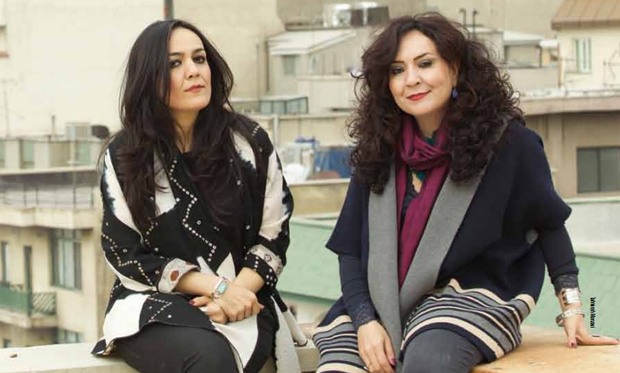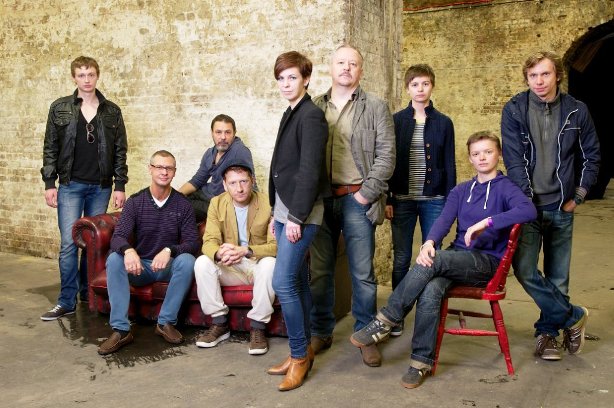Index relies entirely on the support of donors and readers to do its work.
Help us keep amplifying censored voices today.
For over a decade the Belarus Free Theatre have performed underground in Minsk, with audiences subject to raids and arrests while, exiled from Belarus, the theatre’s directors plan their plays via Skype. But an online revolution has seen Belarus Free Theatre, and its new project the Ministry of Counterculture, bring their form of underground activism to the masses in 2015. Index on Censorship spoke to Belarus Free Theatre founder Natalia Kaliada and managing editor of the Ministry of Counterculture Georgie Weedon.
Seeing in their 10th anniversary in 2015, Belarus Free Theatre’s continued existence is in many ways a source of shame to EU and US politicians, the theatre’s founder Natalia Kalaida told Index. The underground theatre group was set up in 2005 by Kaliada and her husband Nikolai Khalezin, in response to censorship and oppression by the Belarusian regime.
The group immediately became a target for the authorities because of their criticism of Aleksandr Lukashenko, and plays touching on taboo subjects like mental health and sexuality. However, despite repeated arrests, brutal interrogations and harassment by the KGB (one of the few intelligence services to keep that sinister Cold War name) they continued to perform underground, using apartments, basements, cafés and forests as their stages.
“We started from just an idea, not having any support,” says Kaliada. But doing nothing was not an option, she says.
“When your friends are kidnapped, killed, thrown into jail, tortured, there is no way for you to just stay and observe. I don’t have such a luxury to be apolitical, and I don’t have time to spend doing entertainment theatre, it has to have a meaning behind it.”
Audience members in Belarus first have to search on social media for a phone number, name and the title of a show. They then call that number to leave their details, and when the theatre has a place to perform, receive a phone call or text message telling them to come to a meeting point, from where they taken to the performance.
“Usually we advise our audience to bring their passports, so if there is a police or KGB raid, people will have less time to spend in the police department while police are identifying them,” says Kaliada. “That’s why we always say our audience back in Belarus is the bravest audience in the world.”
“It’s a very big step for audience members, for us it’s clear what we do and it’s our choice, why we do this theatre, but it’s amazing to have such an audience – every time we get on Skype from London to say hello to our audience, we will ask how many are new, and it will be around 40 percent. Which is just amazing.”
Via Skype is now the only way Kalaida can greet her Belarusian audience. During a tour abroad in 2011, Kalaida and other members of the theatre learned that if they returned to Belarus they would be imprisoned.
This, however, did not stop Belarus Free Theatre. They now have London headquarters – at the Young Vic Theatre – and underground Minsk headquarters. They conceive of new projects and direct their actors in Minsk via Skype, where the company continues to perform in secret locations.
“We survive not because of support, unfortunately, of many different governments, but despite all difficulties that we’re facing on a daily basis,” says Kaliada. The group have now staged 27 productions in over 30 countries.

|
Having protested the Belarusian regime for over a decade, the theatre have now started to use their unique mix of art, performance and political protest to take on dictatorships and authoritarian regimes across the world, by teaching others their unique model of activism.
“The major point for us last year was to move from an idea of us talking about only Belarus, to start to frame the message that it’s not possible to talk only about one particular country or issue, because then you forget about global context,” Kaliada told Index.
The power of this was exemplified in a concert the theatre organised in 2015. Hosted in London but featuring Ukrainian, Belarusian and Russian artists, as well as many well-known names from around the world, the event was watched online by over half a million people.
“It was that unique evening where you understand that it’s necessary for us to connect all those geopolitical doors and to explain to dictators and authoritarian regimes that, with the help of the internet, we could become even bigger than us physically present in Russia, Belarus or Ukraine,” Kalaida said.
“So we continue to say to those dictators, when we go underground, it’s more dangerous for you – because underground doesn’t have any boundaries.”
Belarus Free Theatre’s new project, the Ministry of Counterculture, also aims to harness the power of the internet, art and activism to effect social change.
Published in both English and Russian, the online platform was launched as part of the theatre’s 10 year anniversary, and the site features interviews, videos, photo stories, and news about art and activism around the world.
“It was launched to broadcast and engage with lots of issues – issues that the Belarus Free Theatre are engaged with, but also other issues too,” says Georgie Weedon, managing editor of the Ministry of Counterculture.” But part of the story of Ministry of Counterculture is to look forward. “The Belarus Free Theatre has achieved incredible things in the last 10 years, and we hope the Ministry of Counterculture will become part of the next 10 years and beyond.”

Mahsa and Marjan Vahdat. Read the Songlines article about how they deal with censorship in Iran
Panel discussion including acclaimed singers and a past Index on Censorship Freedom of Expression Award winner Mahsa and Marjan Vahdat alongside Natalia Koliada, co-founder of Belarus Free Theatre, and Lisa Peschel of the University of York who has recently rediscovered extensive archival material of performances, scripts and revues performed in the Nazi ghetto Terezinstadt. The event will be chaired by Julia Farrington of Index on Censorship.
The panel will be asked to explore from their personal and political perspective different aspects of freedom of expression in repressive regimes; the interface between artistic inspiration and life in repressive regimes, and the role of the media in terms of raising awareness of the increasing restrictions placed on artists to curb freedom of expression.
When: Saturday 6 June 2015, 5.00pm to 6.15pm
Where: National Centre for Early Music, Walmgate, YO1 9TL (map)
Tickets: Free admission. Booking required. Additional information: 01904 658338.
 This week, all 25 members of Belarus Free Theatre were in London ready to start their rehearsal for King Lear at the Globe, back after its triumph at the Globe to Globe Festival last year. The company is split between those living precariously in exile in London, and the rest who continue to work illegally and underground under appalling, oppressive conditions back in Minsk and getting everyone together is fraught with difficulties and danger.
This week, all 25 members of Belarus Free Theatre were in London ready to start their rehearsal for King Lear at the Globe, back after its triumph at the Globe to Globe Festival last year. The company is split between those living precariously in exile in London, and the rest who continue to work illegally and underground under appalling, oppressive conditions back in Minsk and getting everyone together is fraught with difficulties and danger.
Seeing them all together at a fundraising event in central London, they looked like a group of young actors anywhere in the world. But in order to get here, 20 of them had to be smuggled out of the country, taking different routes across the multiple borders of the land-locked country to fly from Vilnius, Riga, Warsaw, Kiev or Moscow to London. And the whole trip seemed in jeopardy when on Saturday night, their underground performance in Minsk was raided by the police. This is the first time that the performances have been raided since early July. The police usually just take down everyone’s details as they leave the show. But the significance of this raid was that they stopped the show mid-performance, taking down the actor’s audiences names and passport numbers before letting them go home.
They have been working out of the same small house, teaching students, rehearsing performing for their shows for several years now. But after this raid the actors feel it will not be long before they are unable to use the building. Finding a new building is extremely difficult because it means finding someone brave enough to rent their space to an illegal theatre company.
Natalia Kaliada is co-founder of the Belarus Free Theatre. The group, formed in 2005, performs provocative political works in a country where it can be lethal to criticise the dictator Alexander Lukashenko. Natalia was forced into exile after the brutal crackdown on Belarus’s opposition after the rigged 2010 presidential elections. Here she speaks to Nigel Warburton about the difficulty of creating art in Europe’s last dictatorship